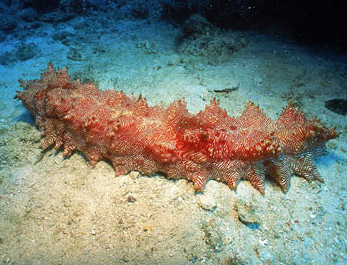Sea cucumber - new 'weapon' against malaria
Nudibranchs (photos) produce a protein called lectin that weakens the development of malaria parasites. This can be seen as a promising new weapon in preventing the spread of this disease.
The international research group PLoS Pathogens, after studying the genetic aspects of mosquitoes, discovered lectin capable of disrupting the development of malaria parasites in mosquito stomachs. To stimulate mosquitoes to produce lectins , the researchers paired a part of the ginseng gene with mosquito genes.

Lectin is toxic to malaria parasites at an early stage, called ookinete . Often ookinete will move through the wall of the mosquito's stomach and create thousands of daughter cells that spread in the salivary glands and spread to humans when mosquitoes suck blood. But when introducing lectins, the ookinete will be killed before they transmit the disease.
It is estimated that around 500 million people worldwide suffer from malaria every year, with more than 1 million people killed.
Minh Anh
- Many people cut the cucumbers so well and know why everyone will follow them
- Warning: Deadly salmonella cucumber is spreading
- How to diagnose, treat and prevent malaria
- Instructions on how to grow cucumbers in pots safely and wrongly
- Video: Sea cucumber 'terrible' is 1.5 meters long on the Red Sea bottom
- The first vaccine against malaria loses its effectiveness after 4 years of injection
- A malaria vaccine has been developed
- Fish can fight malaria mosquitoes
- A breakthrough in preparing malaria vaccines
- How to buy and use real cucumber
- New way to kill malaria parasites
- 3 types of fruits that are not so, prove sometimes do not believe in your eyes
 Green tea cleans teeth better than mouthwash?
Green tea cleans teeth better than mouthwash? Death kiss: This is why you should not let anyone kiss your baby's lips
Death kiss: This is why you should not let anyone kiss your baby's lips What is salmonellosis?
What is salmonellosis? Caution should be exercised when using aloe vera through eating and drinking
Caution should be exercised when using aloe vera through eating and drinking